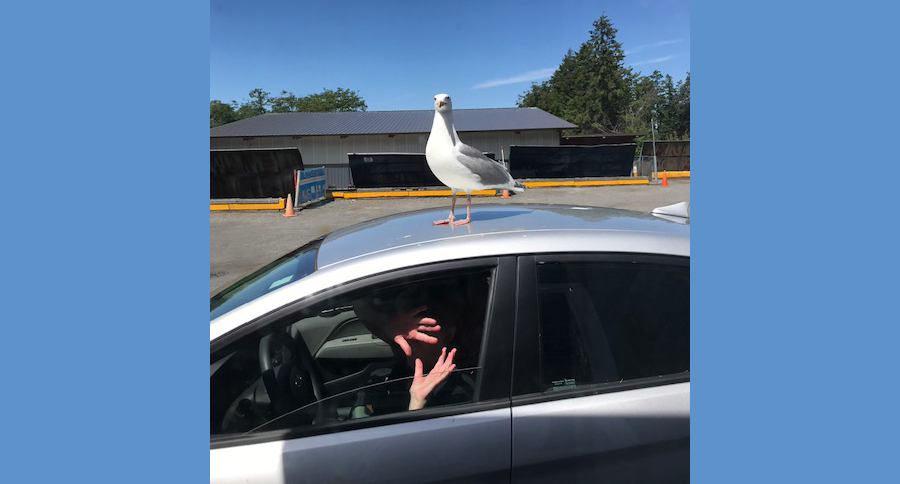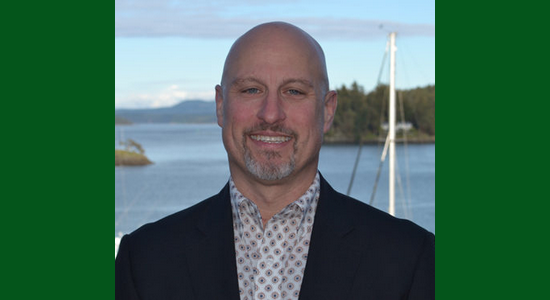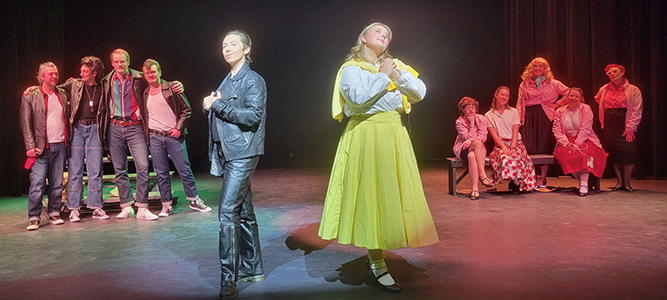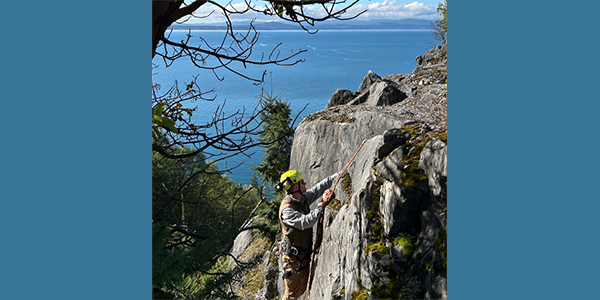||| FROM TOBY COOPER for ORCAS EXCHANGE |||
It’s Monday. First to arrive as always, Cindy Lundquist unlocks the big, swinging bar gate and parks her car in the usual spot. She moves with the confident step of a seven-year veteran operations manager preparing for the day’s intake of trash, recyclables, and icky stuff that all commercial waste handlers seem to adore.
But on this day, with keys and lunch still in hand, Cindy’s intuition tells her she is not alone. She swings around and smiles. “Oh, hi Dexter,” she says, hinting no surprise in her voice.
Dexter offers only silence. Handsome, unafraid, and maybe just a little too focused on Cindy’s lunch bag, he regards her first with one eye, then the other. In fact, Dexter just made Cindy’s day.
“Where have you been, silly bird? We haven’t seen you for a week. And you think you can pick right up where you left off?”
That Dexter is a seagull is old news around Orcas Recycling Services (ORS); he has been around for more years than Cindy herself. Likewise, everyone accepts that Cindy talks to him; ORS willingly embraces diversity of species, and, (why not?) of inter-specific social interactions. It’s tougher for folks to accept that Dexter listens to Cindy, thinks about what she says, and then does exactly what she asks him to do.
To be precise, Dexter is a Glaucous Winged Gull (Larus glaucescens), considered a common year-round resident from the Salish Sea, north to Alaska, the Aleutian Islands and beyond. Robust and imposing at 2 feet, beak-to-tail, with nearly 5 feet of wingspan, they are impeccably appointed with snow white head and underbelly, soft gray wings and back, and
pink legs. One of Dexter’s pink legs shows scars from an old injury, providing an easy ID card for the uninitiated.
Notably for ORS, the Peterson Field Guide to Birds of North America lists “dumps” as a preferred habitat for the Glaucous Winged and other gulls. But don’t ask Cindy Lundquist to buy into the dumps-as-habitat for Dexter – icky stuff notwithstanding. Cindy keeps Dexter amply supplied with clean Old Mother Hubbard’s doggie biscuits, occasional unsalted peanuts, and lunch hour leftovers.
And this brings us to Dexter’s command of the English language. Imagine, if you will, what happens when you unwrap of loaf of Wonder Bread at the beach. Gulls appear out of nowhere, squawking and flapping and demanding bread. Remember, if you will, the dump scene in the spoofy 2011 Jack Black/Owen Wilson/Steve Martin comedy, The Big Year, featuring an actual dump with a zillion screaming gulls in the background. Is this the future at ORS?
“No,” says Cindy. “I expect Dexter to maintain order at ORS, and he does. No squawking. No mob scene. He keeps them all in line.”
It would be easy to dismiss Cindy’s story as a fortuitous result of regular, run-of-the-mill Larus glaucescens behavior. Sure, Dexter keeps other gulls away from his personal source of Old Mother Hubbard’s doggie biscuits. No big deal. But Cindy reminds us that Dexter in fact readily shares lots of doggie biscuits with Little Joe and Puff Puff, a couple of resident crows that also greet Cindy in the morning, also know their names, also follow her and generally pal around like puppy dogs in the park.
So, the next time you are at ORS, take a look around. Is there a big imposing gull with a scar on his leg? Are there two crows sitting suspiciously close to the cashier’s window? Is Cindy engaged in a private conversation with any of them? If so, tuck this away for your grandkids; ORS is a special place, where trash is king, recycling begins, and birds know
their names.
**If you are reading theOrcasonian for free, thank your fellow islanders. If you would like to support theOrcasonian CLICK HERE to set your modestly-priced, voluntary subscription. Otherwise, no worries; we’re happy to share with you.**









Thank you for such a wonderful write-up! I will look for Dexter next time I’m at the Exchange!
Thank you, Toby – and Dexter, and Cindy! You made my day! Great story. Can’t wait for my next visit to the “dump.”